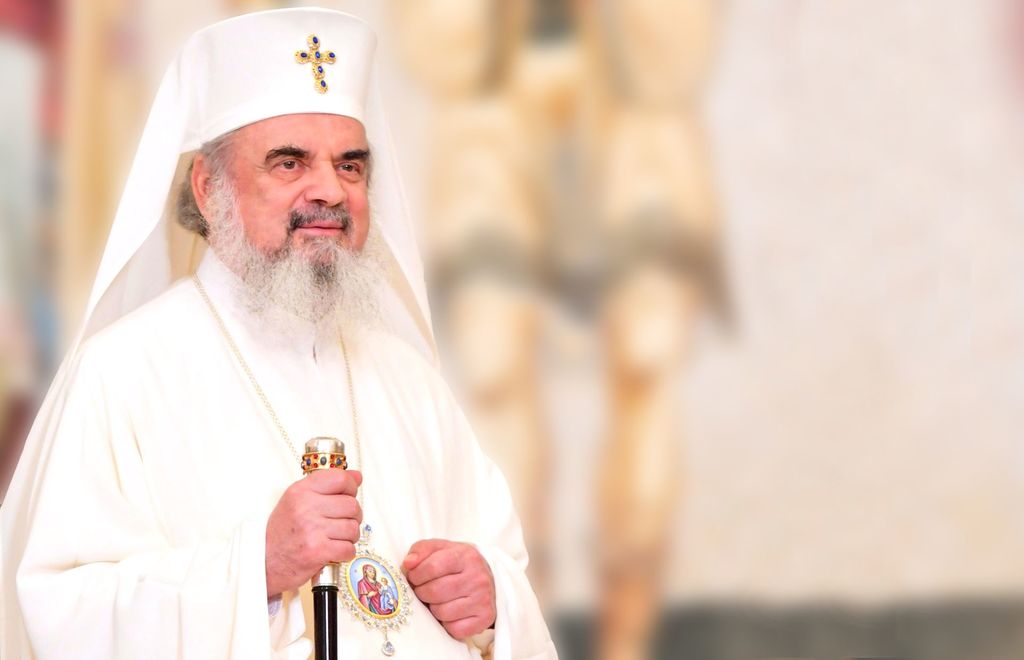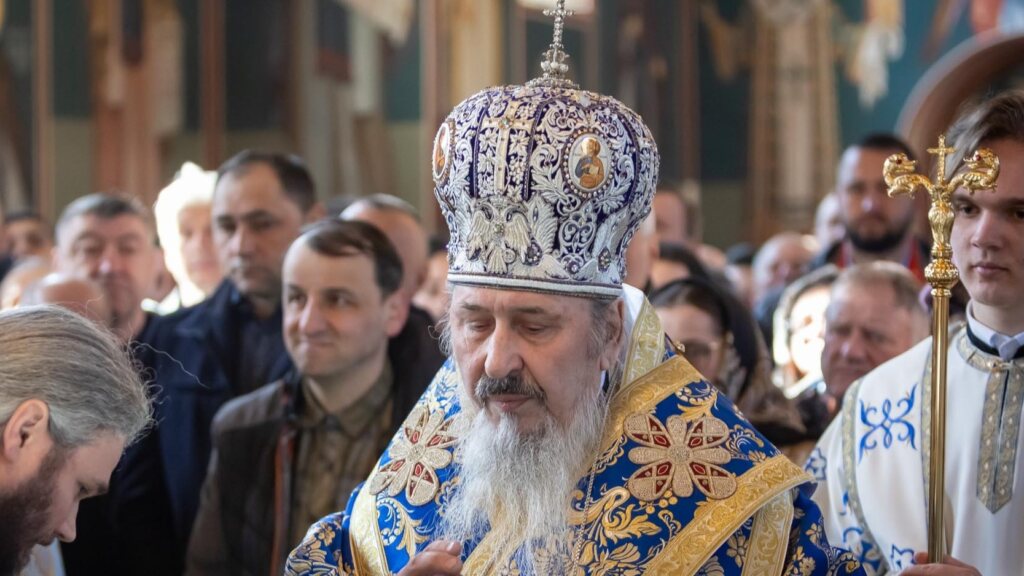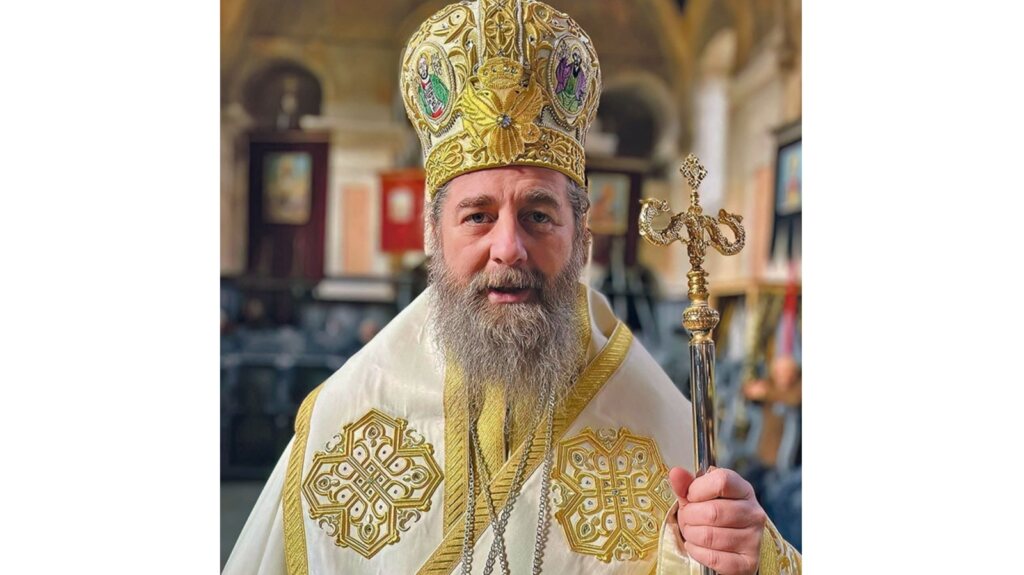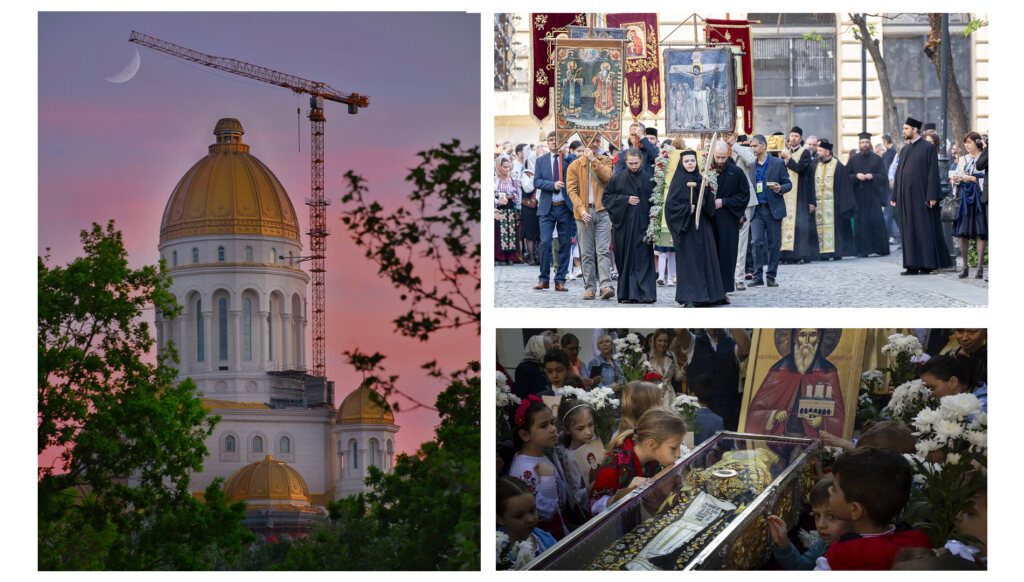Orthodox Christians across the globe are entering Lent, the season of preparation before Easter. The 40-day period sees many Christians partake in a season of moderation, meditation, fasting, prayer and repentance. The exercises in discipline are undertaken to allow believers time to reflect on the life, words and sacrifices of our Saviour Jesus Christ.
For those embarking on the annual Lenten journey, we’ve gathered 40 quotes of His Beatitude Patriarch Daniel about fasting, spiritual growth and the power of prayer.
- We do not fast in order to be seen or praised by people, we fast in order to draw nearer to God.
- Fasting is our offering brought to God, a self-offering brought to God as gratitude and desire to sanctify our life (Romans 12:1).
- We fast because we love God more than His material gifts that we consume.
- Fasting is man’s offering of love brought to God.
- He who fasts, but does not pray, gathers no spiritual light in his soul, thus practicing a simple biological and psychological exercise, motivated by hygiene or aesthetics.
- True fast is not only to abstain from foods of animal origin, but also to abstain from every material greed and desire to selfishly dominate others, a self-control over every thought, word, or deed that diminishes the love of God and our neighbour.
- True fast must be combined with humility and joy in order to become an interior, intimate, spiritual work of personal communion between man and God, Who mystically and silently observes the soul and the deeds of the sacrificial, praying, and fasting believer.
- Through fasting we spiritually take part in our Saviour’s 40-day fast in the wilderness. No one can fight against evil spirits and dark, selfish passions, without first acquiring the light of the divine grace through fasting and prayer.
- Especially during the fasting season we are called to correct the behaviour or attitude of our inner Old Adam, by not blaming others for our sins, but acknowledging and weeping for our sins, by judging ourselves in the Holy Sacrament of Repentance or Confession to receive forgiveness of sins and to partake of Christ’s holy love offered in the Holy Eucharist.
- If it is accompanied by deeds well-pleasing to God, fasting makes man a light among people and a chosen vessel of the glory of God.
- Fasting represents a source of sacred zeal for God.
- We fast because we love Christ our Lord and we wish to be nourished more with the word of the Gospel, with the word of the Holy Scripture, with the words we hear at every divine service and to strengthen our prayer in order to grow spiritually.
- Fasting is also the sign that a believer wishes to become free of the greed of limited, transient, material things in order to more intensely become more united with the unlimited and eternal God through prayer.
- True fast aims at raising man above earthly, material goods in order to receive heavenly, spiritual goods, thus uniting himself with the Heavenly God, the Source of life and of eternal joy in the Kingdom of Heaven, through prayer and partaking more often of the Holy Communion.
- There is not only a material fast, but also a spiritual one, the fasting of the eyes, the tongue, and heart.
- Fasting supports the prayer of a believer who considers his connection with God as the centre, the light, and the nourishment of his soul.
- True fasting produces a change of man’s way of being, a shift from greed or passionate love of material things to the love of spiritual things, to cultivate prayer more intensely, which is a communion of love with the immaterial, unlimited, and eternal God.
- The heart or soul of a man who fasts acquires the freedom to continually enrich himself from the infinite and eternal love of God.
- A spiritual man, who prays and fasts, being enlightened by the grace of Christ, acquires a spiritual reasoning and sight, uses spiritual words and performs spiritual deeds, thus resembling the Saints of God.
- Fasting is a spiritual state of sacrifice or offering, a state cultivated freely and according to personal ability.
- Fasting is a spiritual work well-pleasing to God, when it is practiced out of love for Him.
- We want to nourish ourselves with God’s love more than with His material, limited, transient gifts. That is why, during the fasting season, we diminish the quantity of the material food and increase the spiritual nourishment. We read the Holy Scripture more often, we pray more, we confess our sins more often, thus freeing ourselves from a burdening past, and we receive the Holy Communion more often.
- Fasting pacifies the selfish passions, illumines the mind, sanctifies the senses, changes our attitude and behaviour towards other people and to nature, understanding them all in the light of God’s loving presence.
- Fasting must not be reduced to an outward activity to be remarked or praised by men. It must be practiced as an act pleasant to God, as a self-offering to God and as a detachment from the material to enrich ourselves spiritually.
- Especially during Great Lent, through self-control over food and sins, through prayer and almsgiving, believers crucify their selfish passions and gather resurrection light in their soul.
- Sincerity in love, humility in relationships with others, much striving for good, a fiery spirit in faith, serving God not the idols or evil spirits, hope with joy, patience in suffering, steadfast prayer, hospitality towards strangers – all these virtues are fruits and lights of the renewal of life in the school of true fasting with prayer and good deeds.
- Fasting, humility, prayer, and forgiveness prepare our reconciliation with God and our fellow people and the sanctification of life.
- Fasting is a fighting weapon against temptations from demons.
- Fasting makes prayer more humble, and humble prayer becomes the first food of the one who fasts.
- By fasting we acquire God’s working presence in us as humble love. Then we show it those around us through words and deeds, through spiritual attitude and states, with our whole being, our soul and body.
- The fasting season is a period of spiritual illumination and of adorning the soul with the sanctifying presence of God.
- This is the purpose of the fasting season: to rid ourselves of the things of darkness, to cleanse ourselves from sin that brings darkness into our lives, and to enlighten our soul with those weapons that help us reject sinful temptations.
- Fasting is a discernment of spiritual values.
- Fast should be observed with joy, not with sadness.
- Fasting understood as our separation from limited, transient things and our union with the unlimited, eternal God means the beginning of our inner freedom.
- Only when we have humility can repentance, prayer and fasting be useful.
- Fasting is a school of the freedom to use good.
- We fast so that we may love God and our fellow humans more.
- The fasting season is the time of more intense spiritual feats that help us enhance our spiritual treasures.
- The time of fasting, united with prayer and good deed, is a period of crucifying selfish passions through asceticism or spiritual struggle.
Photography courtesy of the Basilica.ro Archive






